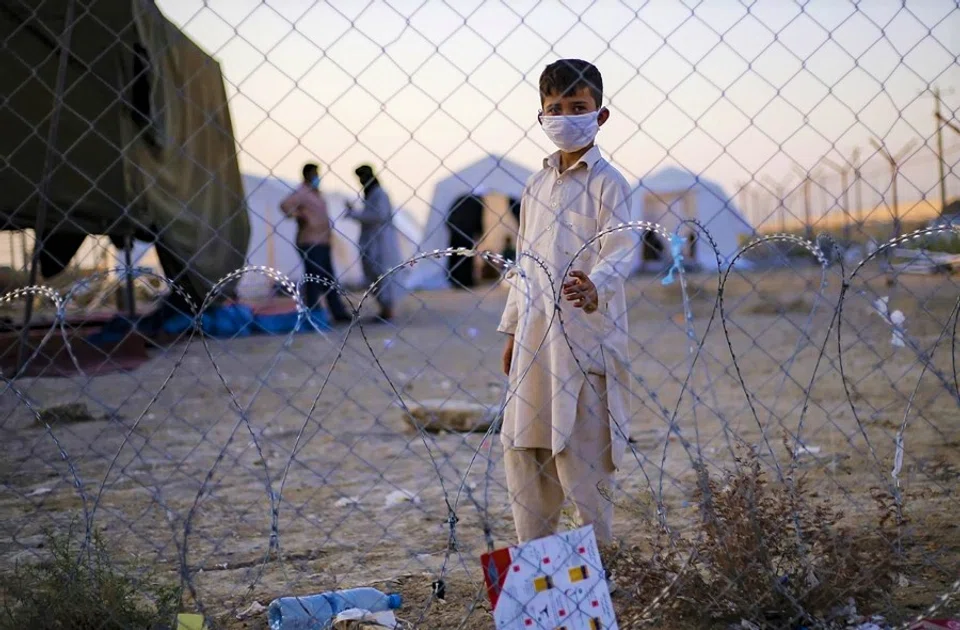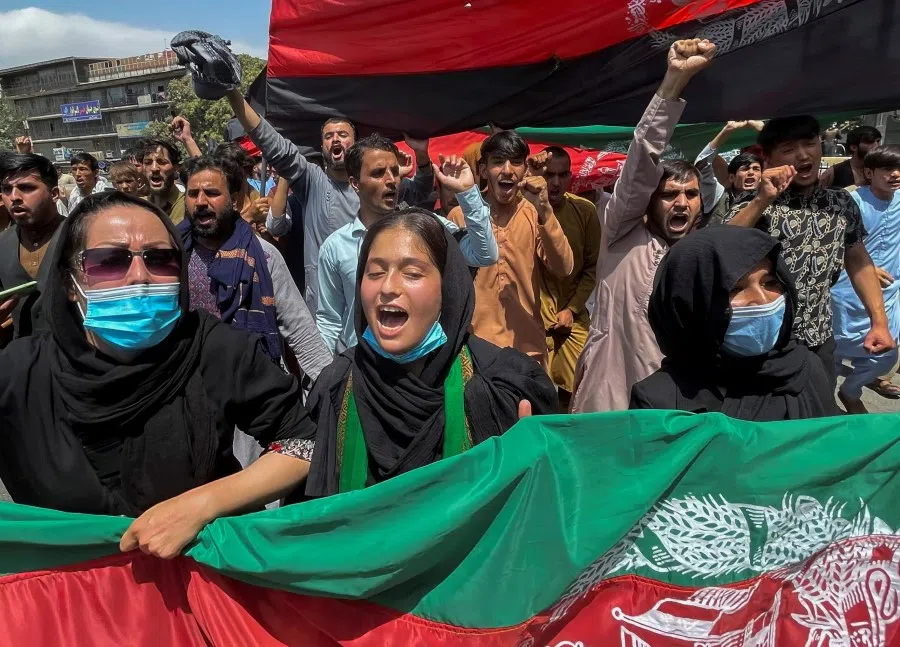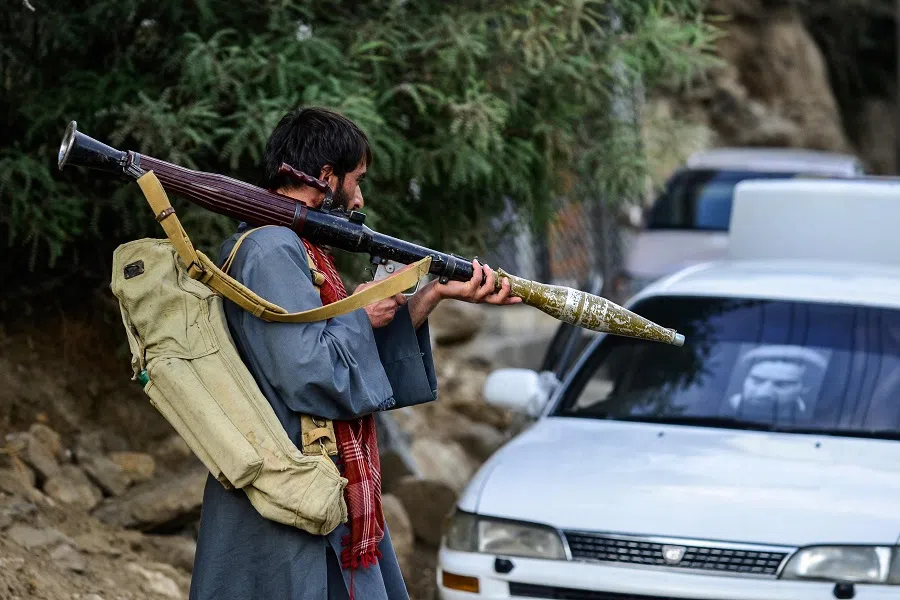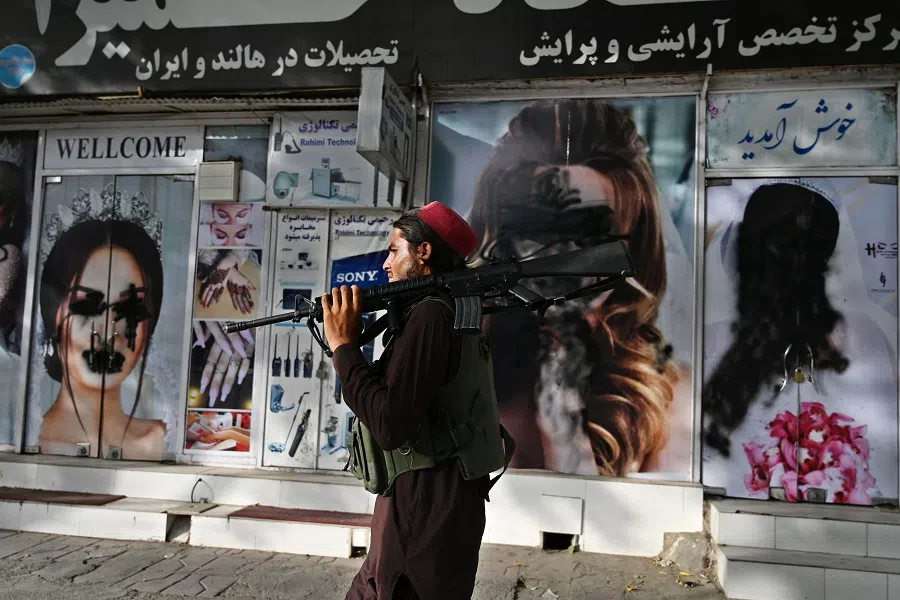What China wants to see under a Taliban-led Afghanistan
Chinese academic Fan Hongda says that following the US troop pullout of Afghanistan, the Taliban have much to do to convince the international community that they can lead the country, and that they can rebuild Afghanistan. Will Taliban rule be any different this time round as compared to 20 years ago? How would China react to the new ruling power in Afghanistan?

After 20 years, the Taliban are once again in power in Afghanistan. What has happened in Afghanistan that led to this political shift? What are the pressing issues for the Taliban as it governs? Will China fill the so-called "power vacuum" in Afghanistan? This article presents the personal observations and thoughts of a Chinese university professor and Middle East researcher. The "Taliban" in this article refers to the Taliban in Afghanistan.
What happened in Afghanistan?
On 15 August 2021, a tectonic shift happened in the political situation in Afghanistan. The Taliban entered the capital Kabul facing little to no resistance, and Afghanistan President Ashraf Ghani left the country after being forced to embrace a Taliban representative. After 20 years, the Taliban are once again in power in Afghanistan.
However, 20 years later, the US experiment with democracy in Afghanistan has not succeeded. On the contrary, Afghans have been seriously hurt by the war that the US started...

In a speech on 16 August, US President Joe Biden said: "We went to Afghanistan almost 20 years ago with clear goals: get those who attacked us on September 11th, 2001, and make sure al Qaeda could not use Afghanistan as a base from which to attack us again... Our mission in Afghanistan was never supposed to have been nation building. It was never supposed to be creating a unified, centralised democracy."
This does not match Washington's previous policy regarding the Middle East. The fact is, after starting the wars in Afghanistan and Iraq, after the Arab Spring movement, Washington did have a clear plan to change the Middle East with democracy, including rebuilding politics in Afghanistan.
However, 20 years later, the US experiment with democracy in Afghanistan has not succeeded. On the contrary, Afghans have been seriously hurt by the war that the US started, which has naturally sparked anger among the Afghan people against the US, and an increasing mismatch between what the US has put into Afghanistan and its results. The Trump administration held talks with the Taliban and signed an agreement to pull out US troops, which shows that the US sees the Taliban as a political force that cannot be ignored and which they need to have dealings with in Afghanistan.
Biden inherited the Trump administration's policy on pulling out US troops from Afghanistan. On 14 April, he announced that this would be completed by 11 September 2021. In fact, this was done very quickly - on 8 July, Biden announced that 90% of US troops had been pulled out.
...in the current context of intensifying competition between powers, Biden's push to complete the US troop pullout of Afghanistan may not look good, but it is in line with the US's current overall national interests.

In his speech on 16 August, Biden said the US troop pullout of Afghanistan is the "right decision". After 20 years of an expensive and casualty-filled war, and the failure of a so-called democratic change in Afghanistan, in the current context of intensifying competition between powers, Biden's push to complete the US troop pullout of Afghanistan may not look good, but it is in line with the US's current overall national interests. And so, we cannot read too much into the damage caused to the US from the troop pullout.
However, the US's hasty pullout caused serious challenges for the former US-backed Afghan government and army. The Taliban kept expanding their controlled territory, and on 15 August toppled the Afghan government.
The Taliban in charge of Afghanistan again
After capturing Kabul, the Taliban hold the political reins in Afghanistan. And according to the Taliban, the future Afghan government will also include other political forces. For the Taliban with its terrible record at the helm from 1996 to 2001 where only three countries recognised the legitimacy of its rule, in rebuilding and governing Afghanistan, it will have to take care of the following issues.
First, the question of how the Taliban get along with other political forces in Afghanistan; which can also be said to be a question of whether the various political forces in Afghanistan can get along and achieve peace and stability in the country. Right now, although the Taliban are in charge politically, the domestic forces against it cannot be ignored, and the Taliban face the tough issue of domestic unity. Furthermore, many Afghan people are worried or have reservations about the Taliban. Also, the Taliban need to take note of their own internal unity.
The Taliban will have to properly handle relations with the international community, particularly their neighbours, especially in separating themselves from terrorism through their actions, and not challenging the core interests of their neighbours.

Second, the question of how the Taliban get along with the international community. Right now, much needs to be done in Afghanistan and it does not have enough capability to rebuild itself, and it needs the support and help of the international community. Besides, a government without the recognition of the international community has little space for growth. The Taliban will have to properly handle relations with the international community, particularly their neighbours, especially in separating themselves from terrorism through their actions, and not challenging the core interests of their neighbours.
Third, paying attention to economic development and the improvement of people's livelihood. A regime's stability is dependent on economic development and public opinion. While Afghanistan does not have the conditions to propel rapid economic development and greatly improve people's livelihood at the moment, the Taliban must give Afghans hope and let them feel that their current sufferings will be alleviated in the future.
Objectively speaking, although the Taliban have already shown some changes this time round as compared with 20 years ago when they ruled Afghanistan, the Afghans and international society remain doubtful about its future governance. Now, if the Taliban hope to have smooth and long-term governance of the country, they have to boost the confidence of the Afghans and international society through concrete measures. Undoubtedly, international society also has to respect Afghanistan's own development pattern and not interfere in its internal affairs.

Does China acknowledge the legitimacy of the Taliban's rule over Afghanistan? This is a matter of considerable concern for Western media. Whether it is the US or China, I think that they would decide for themselves based on the Taliban's governance policies. Thus, whether China acknowledges the legitimacy of the Taliban's rule is dependent on the Taliban's future actions and policies.
What China wants to see is peace and stability in Afghanistan. Hence, China is actively helping various political forces in Afghanistan achieve political reconciliation, and its efforts are consistent with what the Afghans want.
China has no intention of filling the so-called "power vacuum" in Afghanistan
As the Taliban have recently regained control of Afghanistan, international media have quickly turned to focus on the future of China-Afghanistan relations. Moreover, many people are also associating Afghanistan's major political shake-up with China-US competition. I think that both international and Chinese media have overinterpreted the situation in Afghanistan and the great power competition that may be triggered by it.
Afghanistan's current massive political change may create some psychological impact on other pro-American regimes, which would then think deeper about the future development of relations with the US. Furthermore, following the collapse of the former US-backed Afghan government and the return of the Taliban that Washington had once removed, the emergence of yet another pro-American regime in Afghanistan is unlikely in the short term. This is also a crucial reason for the US's current focus on the interaction between China and the Taliban. After all, the US already sees China as its key competitor.
Under such circumstances, some Western media such as those in the US are saying that China may fill the power vacuum in Afghanistan. In actual fact, China is not intending or planning to replace the position that the US once had in Afghanistan. What China wants to see is peace and stability in Afghanistan. Hence, China is actively helping various political forces in Afghanistan achieve political reconciliation, and its efforts are consistent with what the Afghans want. Thus, if China's influence in Afghanistan really expands in the future, that would be the natural outcome of the mutually beneficial development of relations between both countries and not that it has filled the vacuum left by the US.

Now on to the specifics of the future development of China-Afghanistan relations. I think that China will continue to push for the reconciliation and unity of various political forces in Afghanistan and help reconstruct Afghanistan on the foundation of bilateral agreements. In late July, a visiting delegation led by a core leader of the Taliban visited China and was received by Chinese Foreign Minister Wang Yi. I believe that China and the Taliban have already engaged in some deep conversations during the meeting. The new Afghan government will face the tough mission of reconstructing the country following its establishment. Since China has its own strengths in this regard, Afghanistan's reconstruction will be an important cooperation topic between China and the new Afghan government.
The likelihood of such a cooperation between China and Afghanistan is one of the most normal ways of communication among the international community. Thus, I suggest the US and other Western countries not to overinterpret the relationship between China and the Taliban, and between China and Afghanistan. What will they gain by doing so? Can they cover up their defeat in Afghanistan?
On 16 August, Wang spoke with US Secretary of State Antony Blinken on the phone at request. One of the main topics discussed was that both sides would work together to promote stability in Afghanistan. This move is praiseworthy. China and the US are major powers with relatively smoother communications with the Taliban and the former Afghan government. Both countries should work together to help Afghanistan achieve a peaceful transfer of power, and assist the Taliban, which have already gained control of Afghanistan, better integrate into international society.





